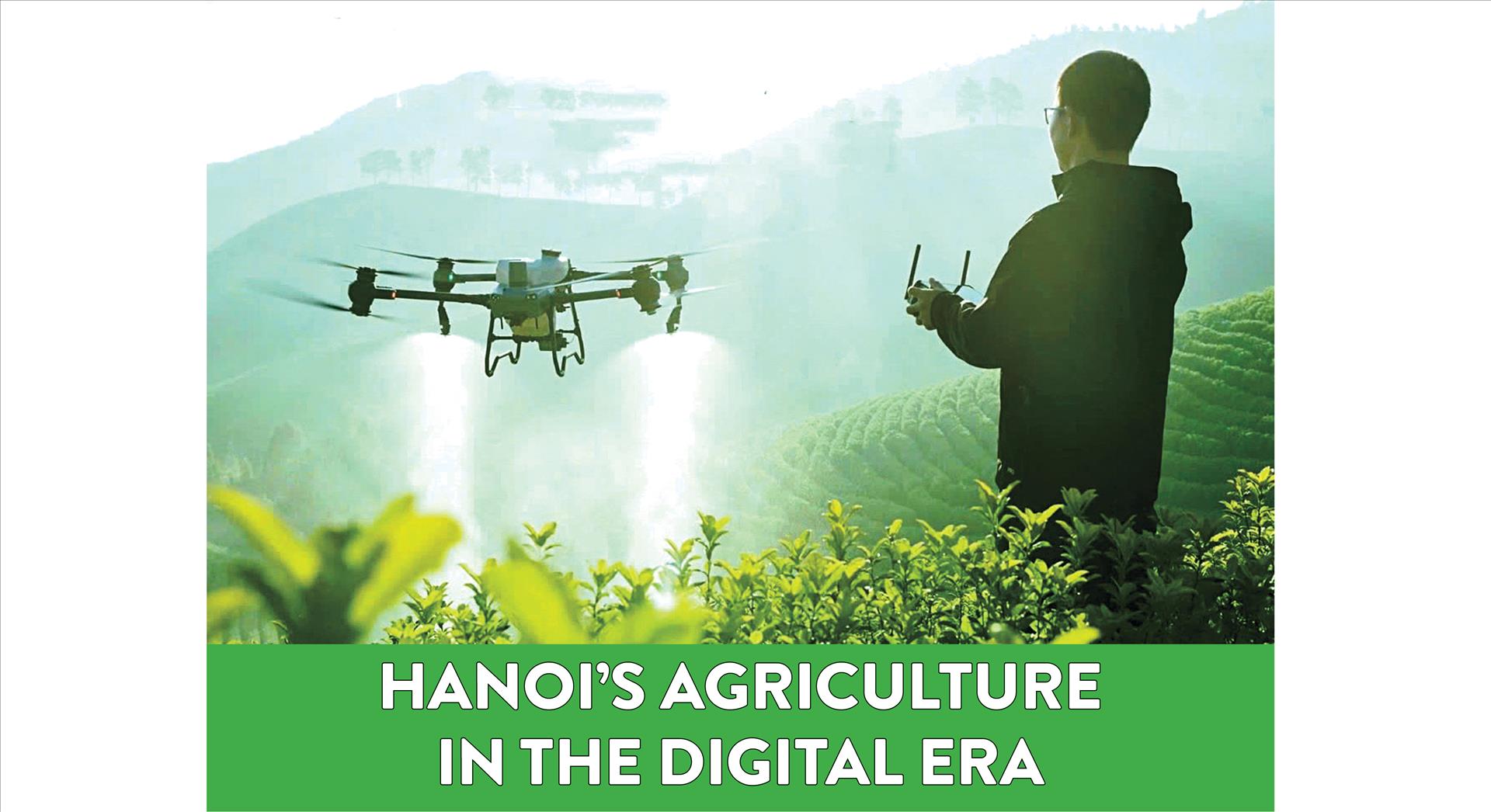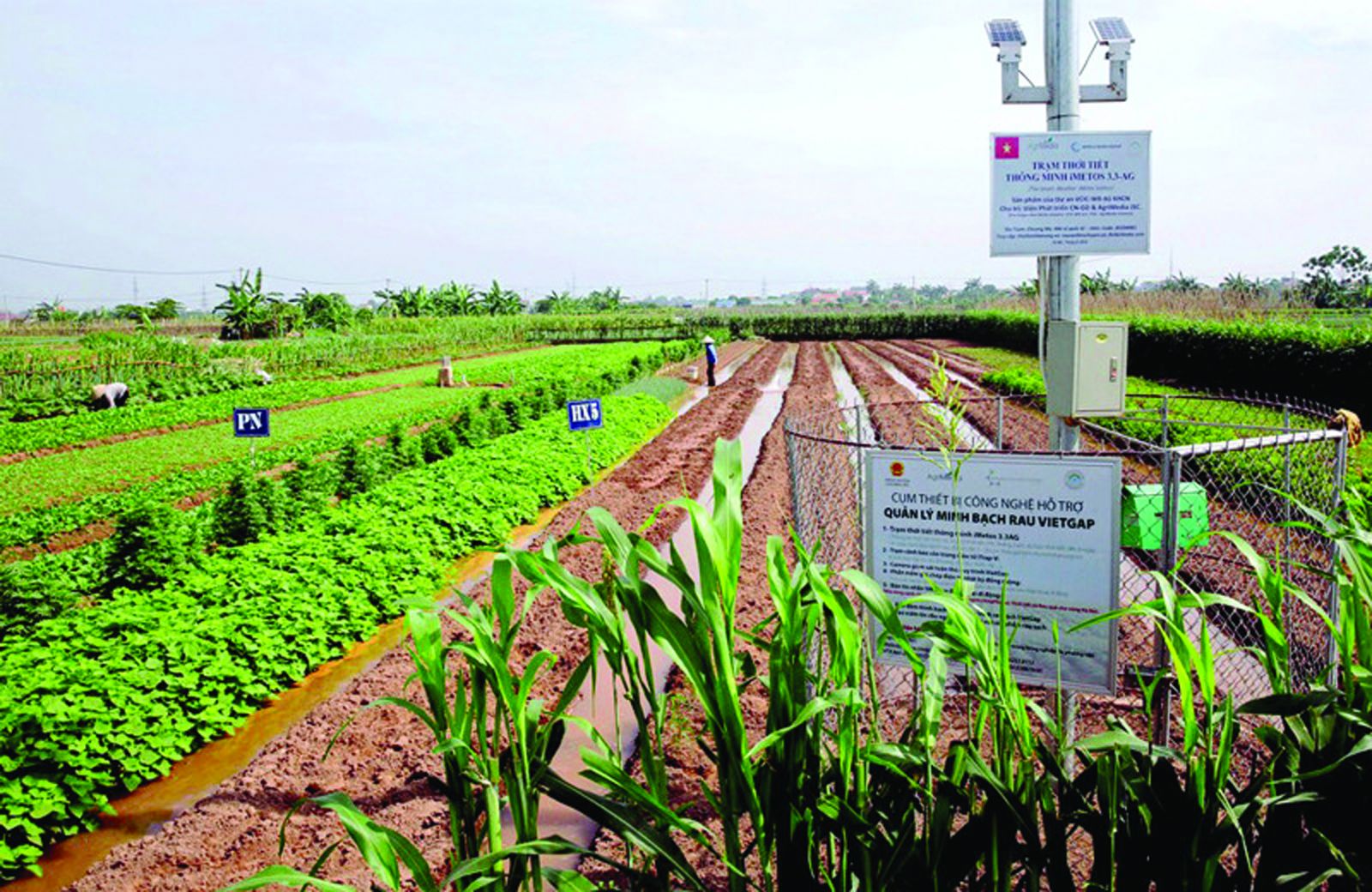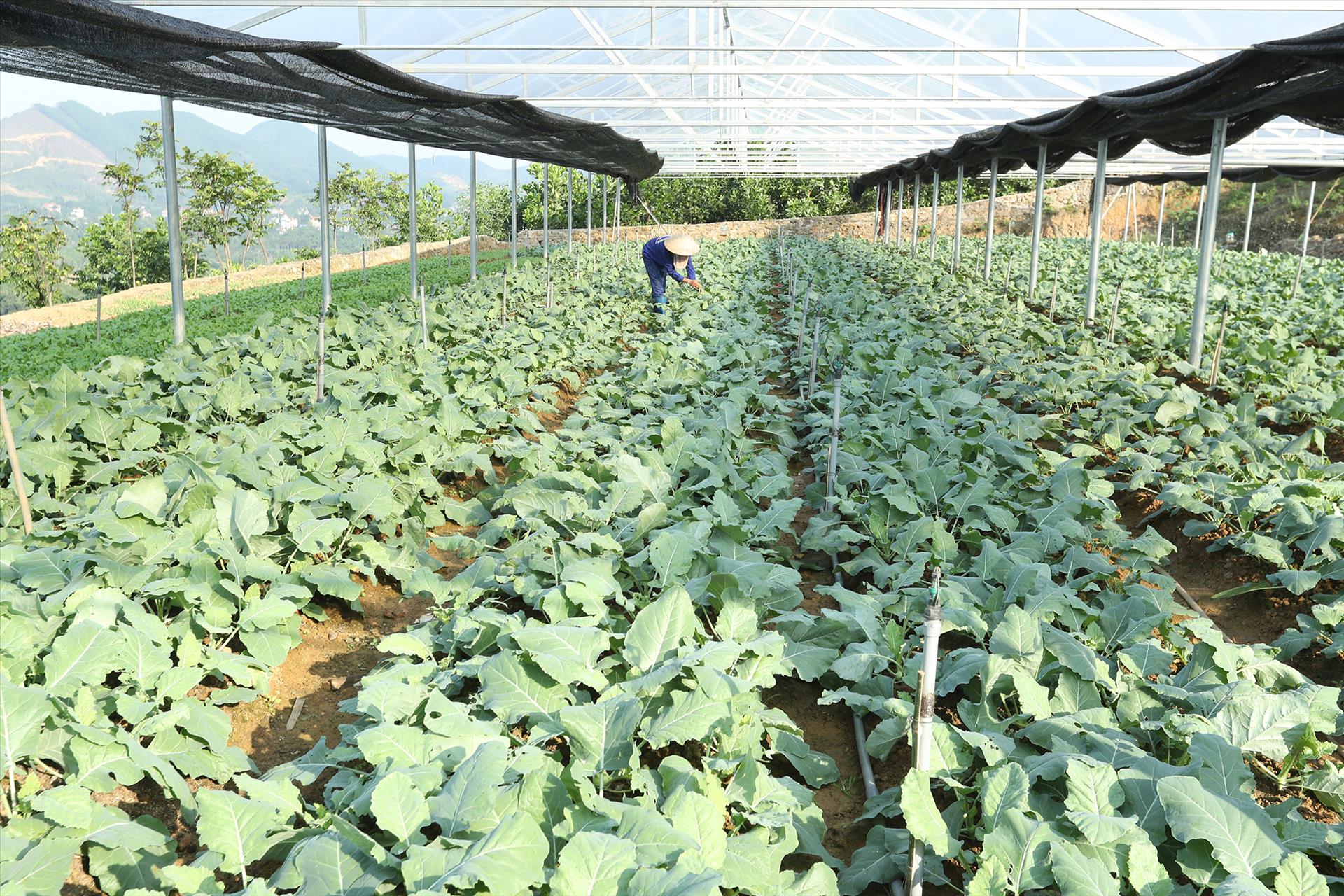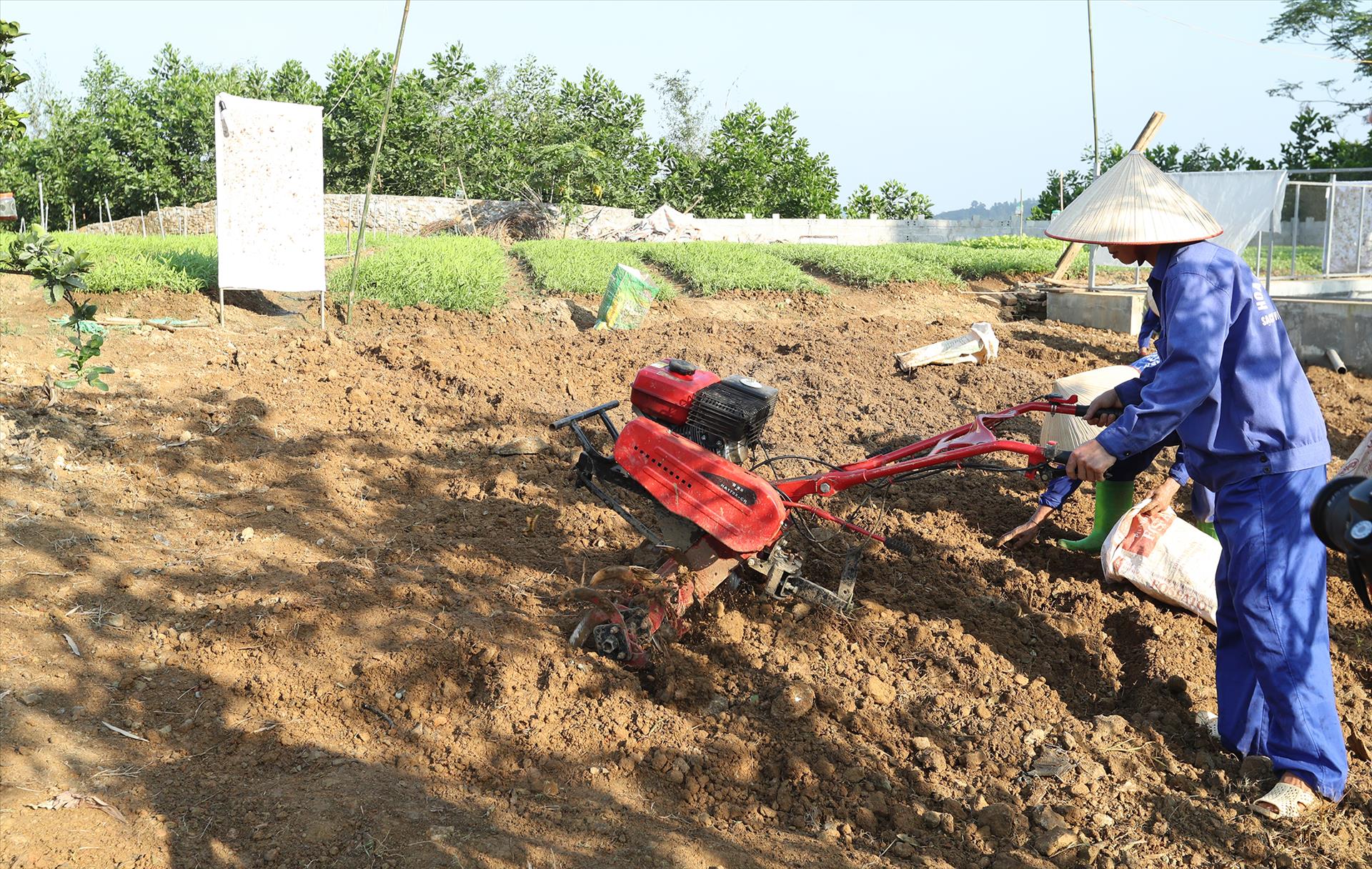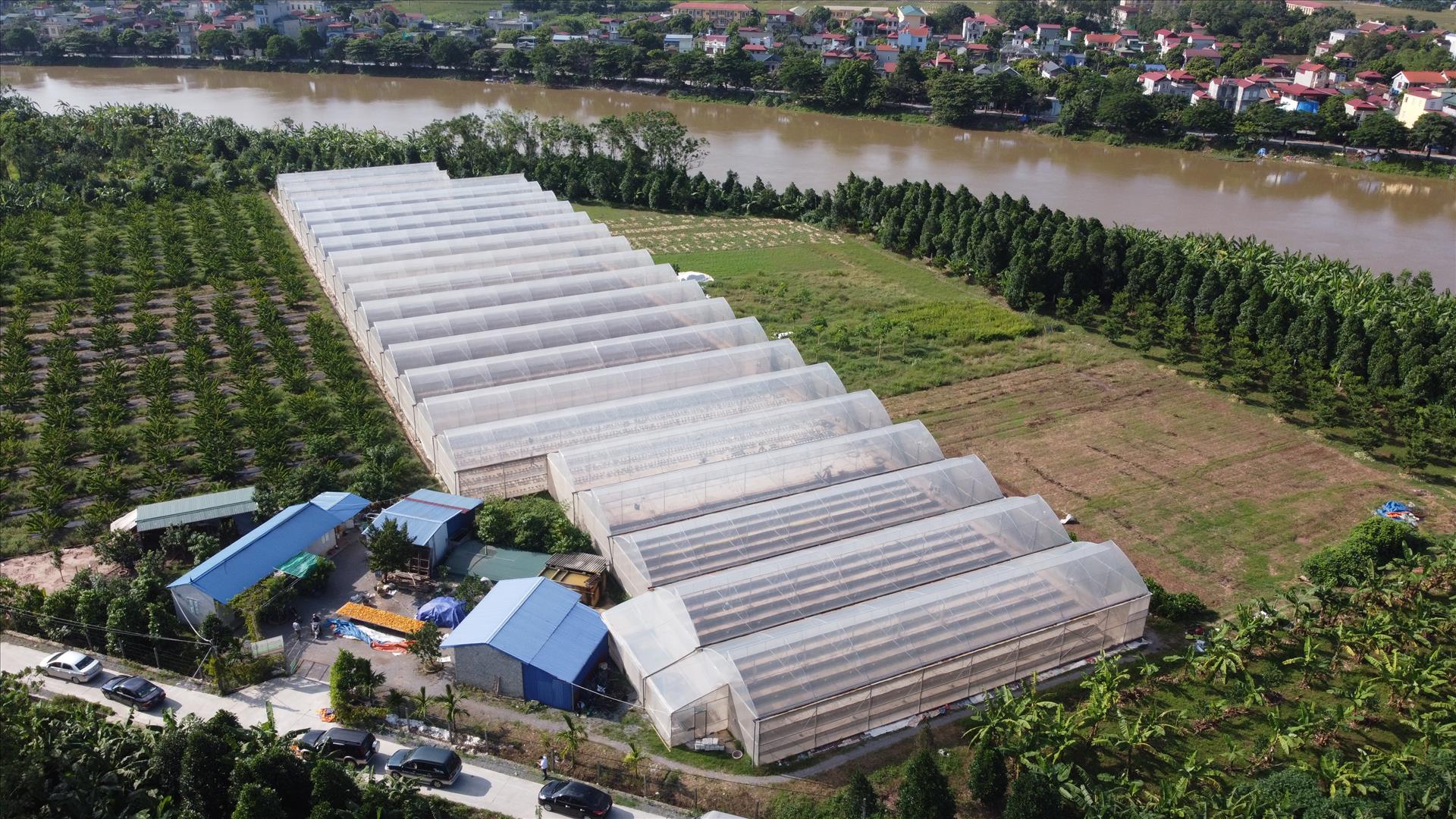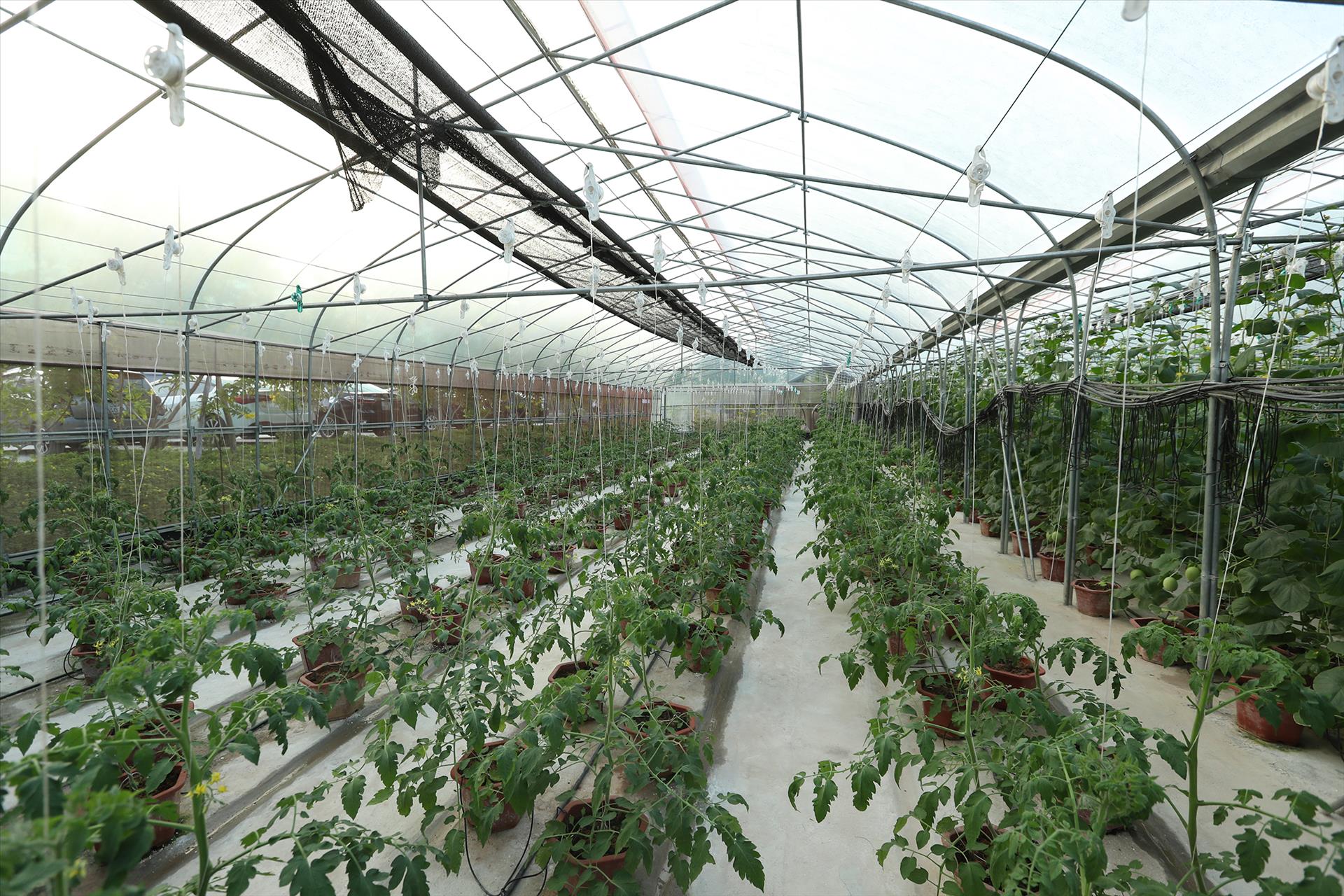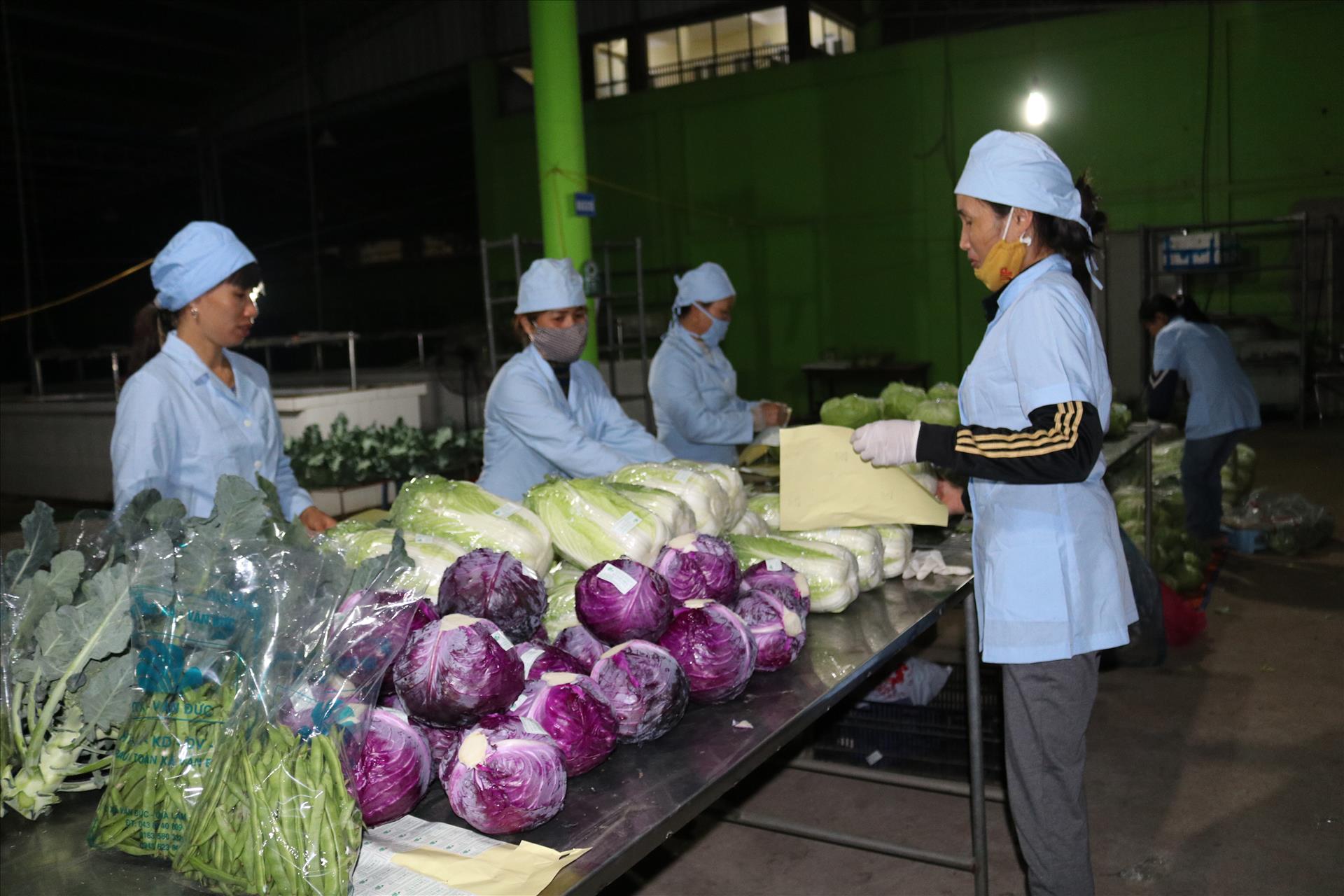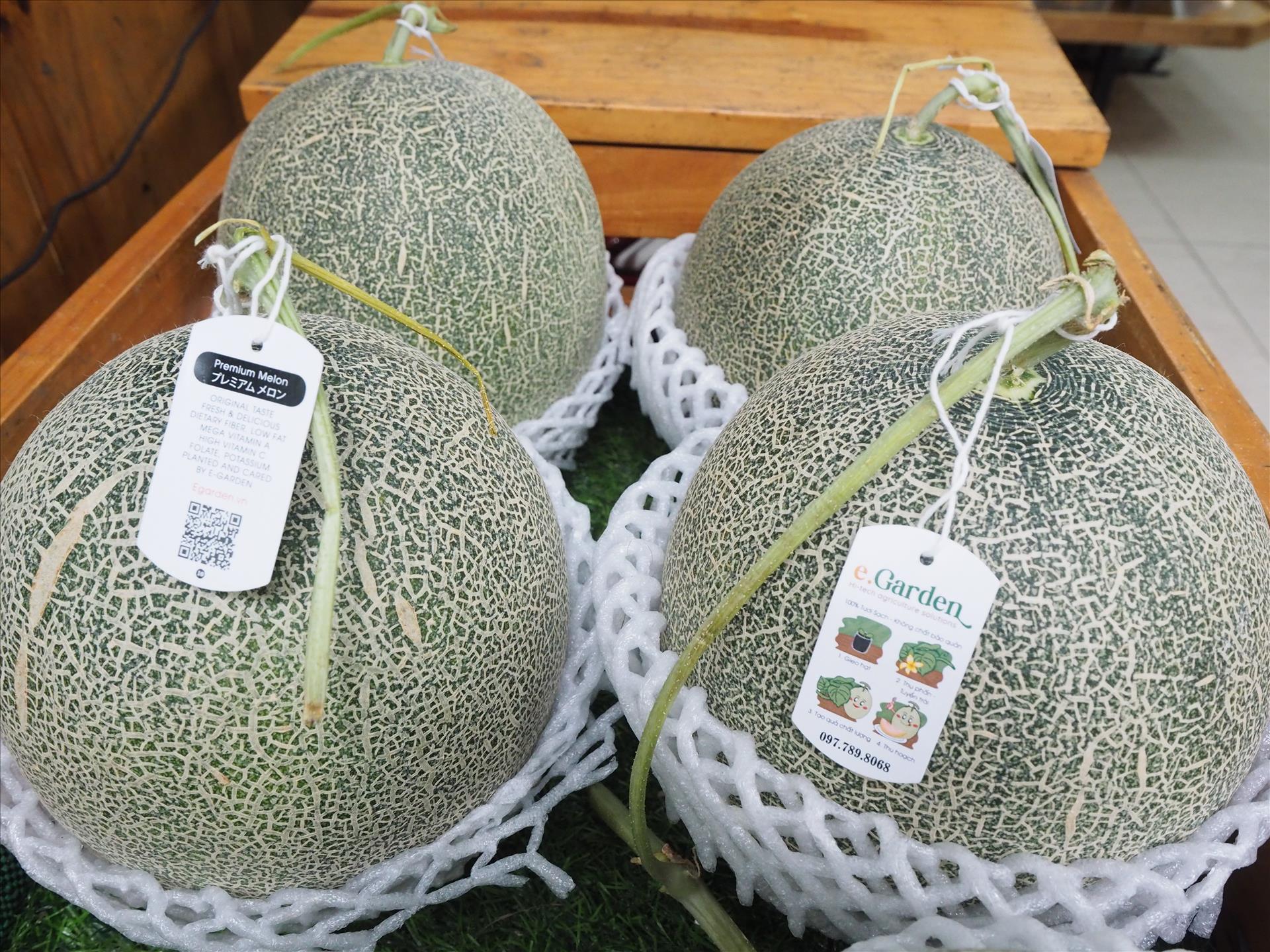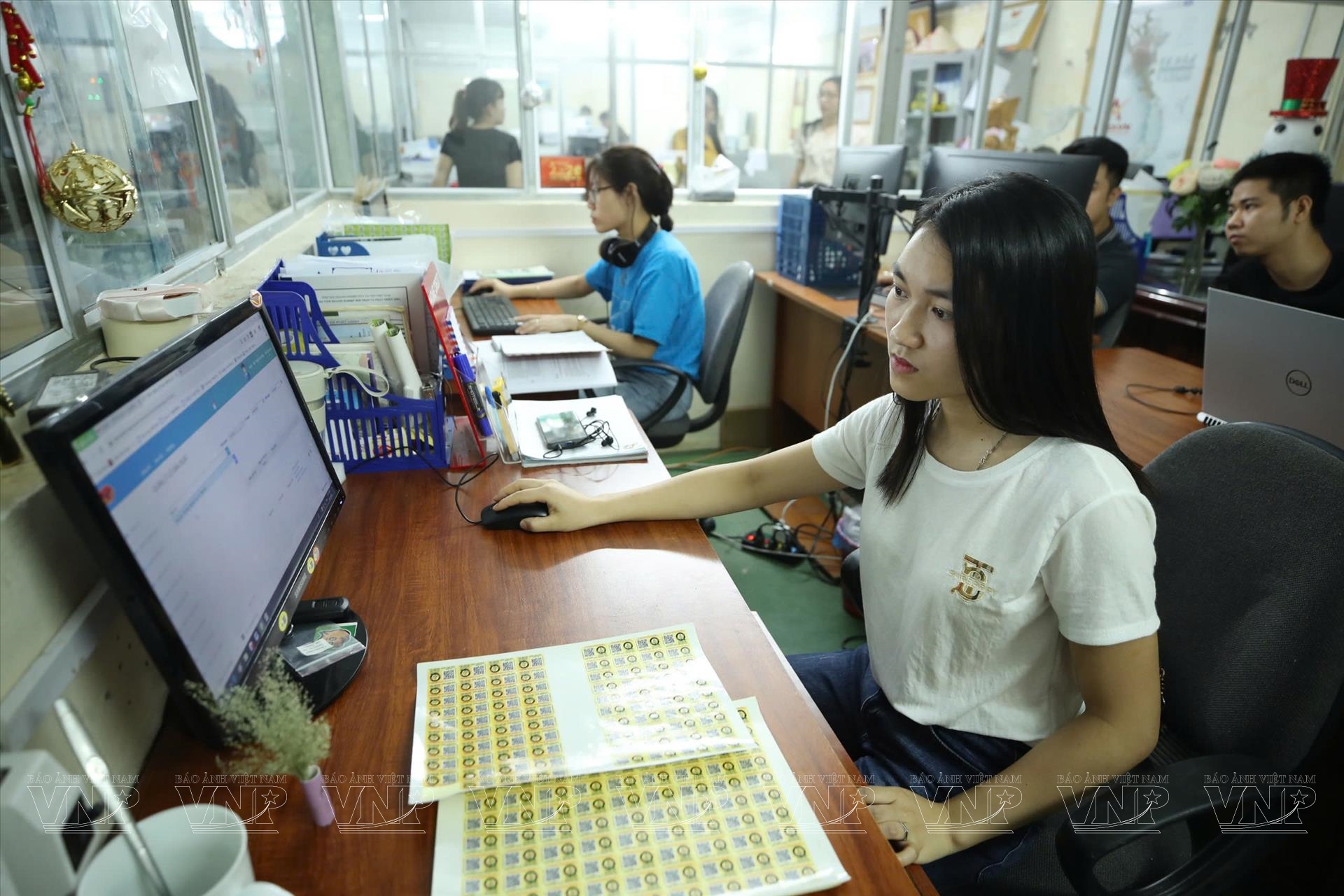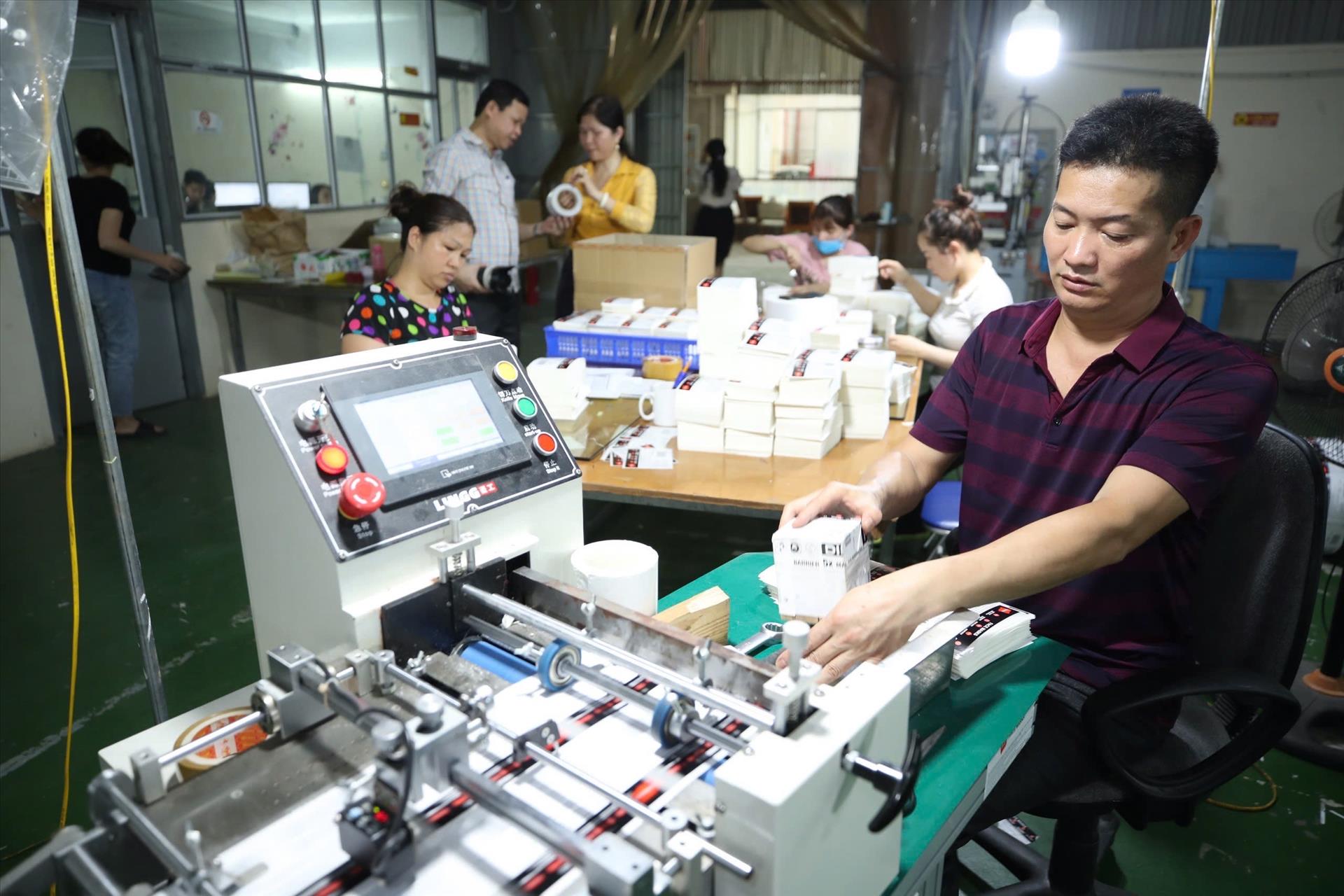Hanoi’s Agriculture in the Digital Era
Digital transformation in agriculture not only involves technology applications to add economic value but also provides farmers access to updated information, encouraging new perspectives and innovative practices. Currently, Hanoi is one of the regions actively promoting digital transformation in agriculture. Many cooperatives and enterprises in Hanoi have widely adopted digital technology to produce high-quality agricultural products that are safe and adaptable to climate change.
Advanced technology like blockchain, artificial intelligence, data management, IoT (Internet of Things), big data, and drones are being applied in the production, processing, and distribution of agricultural products. Thanks to smart devices, farmers can manage their farms conveniently and effectively. They can irrigate, fertilize, and monitor crop growth remotely using just a smartphone.
Bui Thi Thanh Ha, Director of the Thanh Ha Agricultural Production and Service Cooperative in Thuong Tin District, said that her cooperative uses 10,000m2 for growing sprouts and all their products are produced according to organic standards. To promote and sell their products, the cooperative registered a QR code integrated with information on production traceability, harvesting, and packaging. With a simple QR code scan, consumers can access complete product information, ensuring product authenticity. This has built consumer trust, enabling the cooperative to supply over 200tons of sprouts to the market annually.
Nguyen Viet Hung, Director of the Quang Bi Agricultural Cooperative in Chuong My District, mentioned that to reduce labour costs, the cooperative plans to use drones for sowing seeds over an area of nearly 400ha in the spring of 2024. Mechanizing the soil preparation process and using drones for sowing offers multiple benefits. Not only does the rice grow well, but yields are high, costs are reduced, and the value can be increased by two to three times compared to traditional methods.
Nguyen Thi Thu Hang, Head of the Hanoi Quality, Processing, and Market Development Sub-department, noted that the city maintains a traceability system for agricultural, forestry, and seafood products (check.hanoi.gov.vn). So far, the system has supported and managed 3,533 cooperatives and production facilities, issuing 14,050 traceability codes for products meeting food safety standards. In 2024, the number of agricultural products on e-commerce platforms increased by 30% compared to the previous year. Businesses in agricultural production, forestry, and seafood have employed digital marketing, promoting products and building brands via social media (Facebook, TikTok, Zalo), websites, and mobile apps, helping to attract customers from both domestic and international markets.
According to Nguyen Dinh Hoa, Deputy Director of the Hanoi Department of Agriculture and Rural Development, for the integration of digital technology in agriculture, Hanoi should continue to develop and standardize tools for digital transformation. This includes digitizing data and creating databases for land, crops, livestock, and aquatic resources, facilitating data sharing for state management, and supporting production and business for individuals and enterprises. Additionally, efforts to promote key agricultural products and OCOP products (One Commune One Product) on e-commerce platforms should be strengthened.
Currently, according to Hanoi’s Department of Agriculture, the city has established 406 high-tech agricultural models with 262 crop production initiatives, 119 livestock enterprises, and 25 aquaculture projects, mainly in Hoai Duc, Me Linh, Gia Lam, Thuong Tin, Dong Anh and Thanh Oai districts./.
Story: Hoang Ha Photos: Hoang Ha/VNP, Phuong Tin Translated by Phuong Tra
